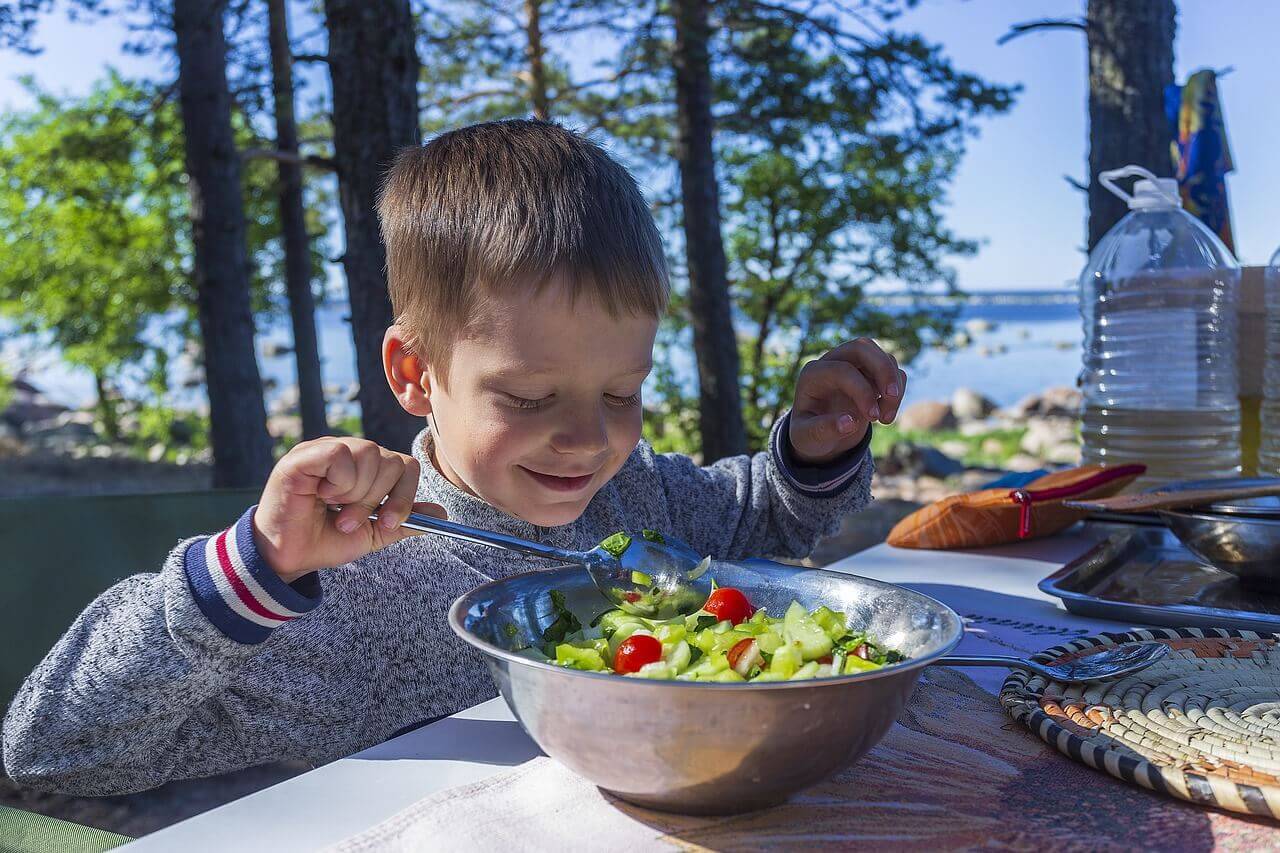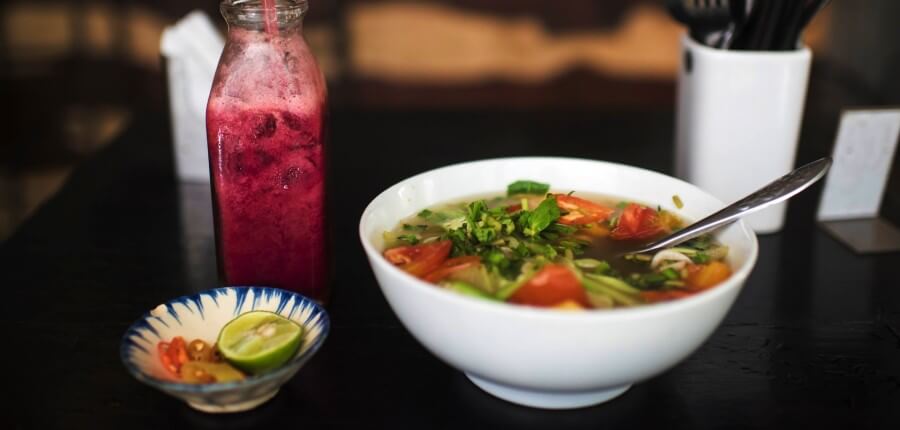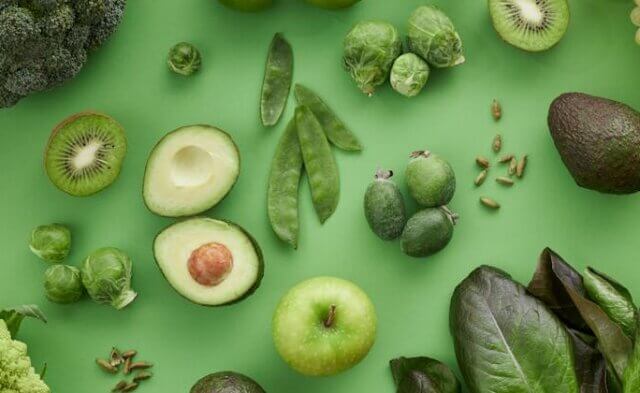There’s good news for people who want to lose weight without counting calories or feeling hungry. A study by physician and New York Times bestselling author Michael Greger found that people can lose weight without eating less by following a whole-foods, plant-based diet. Dr. Greger believes that the “eat less” concept of conventional weight-loss diets—which emphasizes smaller portion sizes—can leave people feeling hungry and unsatisfied.

“A more effective approach,” he writes, addressing his fellow physicians, “may be to shift the emphasis from restriction … to a more positive message of ‘eat more’ healthy, low-calorie-density foods.”
Calorie density is key. Our stomachs can hold only a certain volume of food. When we hit that point, the stomach sends an “I’m full” signal to the parts of the brain that control appetite. Calorie density or concentration—the number of calories in a given volume of food—varies widely across foods. As Dr. Greger points out, just one tablespoon of oil has as many calories as two cups of blackberries. While your stomach would barely register the spoonful of oil, two cups of berries would trigger a fullness signal. If you fill up on high-bulk foods that are low in calorie density—such as fresh fruits, vegetables, beans, and whole grains—you can consume fewer calories and lose weight without feeling hungry.
“Some foods are so low in calorie density,” says Dr. Greger, “that they are impossible to overeat; physically, one could not eat enough to maintain their weight.”
Why are plant foods so low in calorie density? Primarily, because they’re mostly composed of water, which takes up space but has no calories. Many vegetables—such as lettuce, celery, bok choy, cucumbers, zucchini, tomatoes, green bell peppers, and asparagus—are made up of about 95% water. And many fruits, including watermelons, strawberries, grapefruit, cantaloupes, peaches, Asian pears, and blackberries, are about 90% water.
Beyond a plant-based diet, how can we lose even more weight? Dr. Greger notes that it’s “not only what we eat, but how and when.” Due to our circadian rhythms, calories are less fattening when consumed at breakfast than when consumed at dinner. Dr. Greger advises not eating after 7 p.m. He also recommends “pre-meal loading” with foods that have low calorie density, citing studies that found that when people ate an apple or a bowl of vegetable salad or soup (each about 100 calories) before a meal, they consumed 200 to 300 fewer calories at the main meal. So he advises that “simply starting a meal with foods containing fewer than 100 calories per cup, such as many fruits, vegetables, soups, salads, or just a tall glass of water—may be able to accelerate the loss of body fat.”
Order a FREE Vegan Starter Kit!




